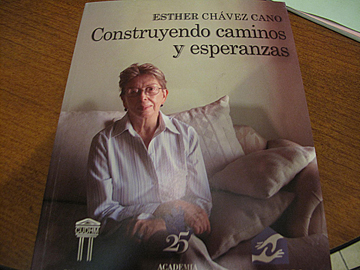Caravan for Peace demands an end to the wave of Mexican violence
|
EL PASO — The beat of drums and shakers echoed off the buildings of downtown El Paso’s San Jacinto Plaza Saturday as matachines danced and a few hundred persons chanted “¡Juárez, Juárez, no es cuartel! Fuera ejército de él.”
The Caravan for Peace with Justice and Dignity, led by poet and activist Javier Sicilia settled in at the plaza as the poet told a crowd of several hundred about his son’s killing and stressed once again that the drug-war murders in Mexico are non-discriminatory. If something isn’t done to stop the killings, anyone could be a victim, he said. “It’s a war that no longer distinguishes. Any Mexican can be assassinated, can be a victim of crime or repression,” Sicilia said.
